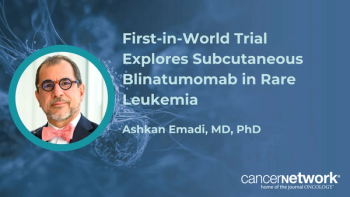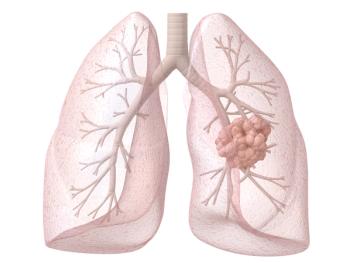
Hospice Underuse Linked With Lack of Tailoring for Blood Cancers
Although hematologic oncologists see the value in hospice, their concerns about the adequacy of services for their patients with blood cancers may limit hospice referrals.
Although hematologic oncologists see the value in hospice, their concerns about the adequacy of services for their patients with blood cancers may limit hospice referrals, according to the results of a study
“Our analysis suggests that most hematologic oncologists value the hospice philosophy; however, they are less supportive when asked questions assessing whether hospice is ‘expressly tailored’ to the needs of patients with blood cancers,” wrote Oreofe O. Odejide, MD, MPH, of the Dana-Farber Cancer Institute in Boston, and colleagues. “New models of hospice that more expansively address these needs-such as allowing red cell transfusions and continuing oncology visits-will be essential to improving enrollment and quality of end-of-life care for this patient population.”
Although hospice has been shown to positively affect the care of patients at the end of life, only a minority of patients with hematologic cancers in the United States enroll. In fact, they have the lowest rates of hospice use of all cancer patients, according to the study.
Odejide and colleagues conducted a mailed survey of randomly selected hematologic oncologists in the United States to examine their perspectives on the use and adequacy of hospice for patients with hematologic malignancies.
The researchers received survey responses from 349 of 667 oncologists (response rate of 57.3%).
Well over one-half of the respondents (68.1%) strongly agreed that hospice care is of value for patients with hematologic cancers. Oncologists with more than 15 years of experience were more than twice as likely to strongly agree that hospice is helpful (odds ratio, 2.42; 95% CI, 1.38–4.22). Interestingly, those oncologists whose practices had at least 25% of patients with solid tumors were more likely to strongly agree about the value of hospice (odds ratio, 2.10; 95% CI, 1.26–3.52).
Despite their support for hospice, almost one-half (46%) of respondents said they felt that home hospice is inadequate for their patients’ needs compared with in-patient hospice.
More than one-half of respondents (61.7%) said they would be more likely to refer patients to hospice if red cell and/or platelet transfusions were allowed. Those physicians who thought home hospice was inadequate were even more likely to report that they would refer patients if these treatments were available (67.3% vs 55.3% for red cells; P = .03; and 52.9% vs 39.7% for platelets; P = .02).
“Taken together, these findings suggest that although hematologic oncologists value hospice, rates of referral are relatively low because the current hospice model may not meet the practical needs of blood cancer patients,” the researchers wrote.
Finally, 52.4% of respondents said that would enroll in hospice if they were terminally ill with cancer.
“Our data suggest that rather than further educating hematologic oncologists on the value of hospice, interventions that tailor hospice services to their specific patient needs are more likely to be effective at increasing enrollment,” the researchers wrote.
Newsletter
Stay up to date on recent advances in the multidisciplinary approach to cancer.












































